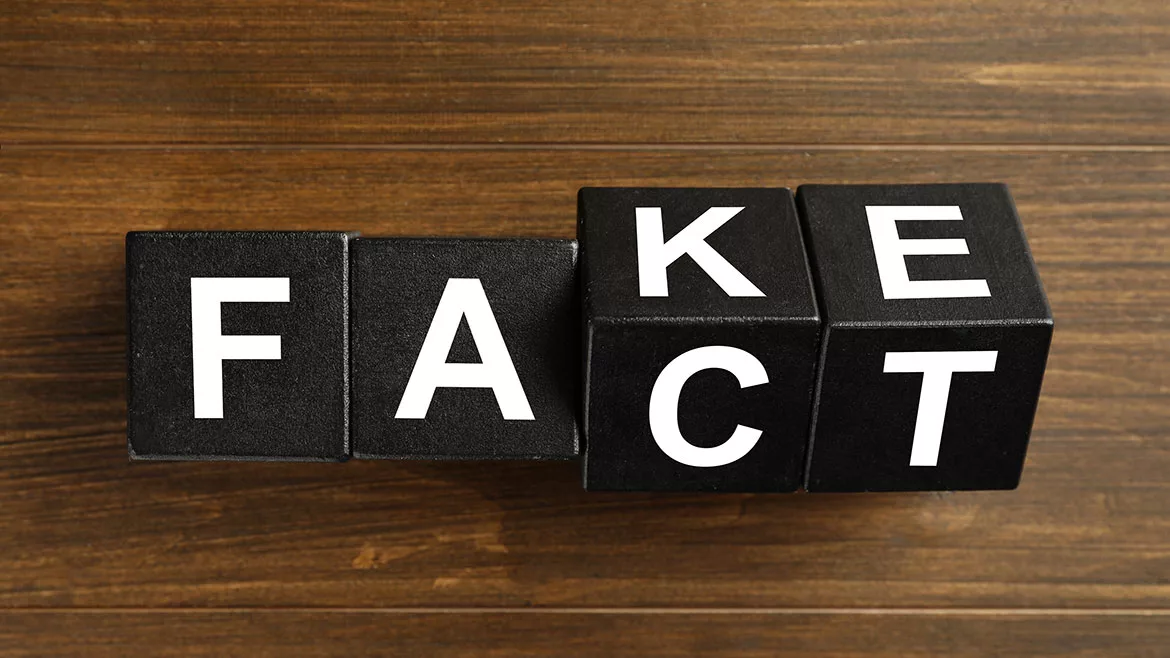Guest Editorial | Josh Weiss
Deepfakes are here: Here’s how plumbing and HVACR companies can prepare
Best practices to mitigate negative impacts to public perception.

Image courtesy of Liudmila Chernetska / iStock / Getty Images Plus.
Did you know that it could take 30 seconds to create a deepfake?
Deepfakes are AI-generated images, audio files or videos that can be created using any mobile device or computer. They can be created by disgruntled employees, unsatisfied customers or competitors to manipulate or spread misinformation that can destroy a plumbing and mechanical company's reputation.
Think what could happen if an AI-generated video of one of your employees stealing from a customer's house was posted to Facebook, TikTok or YouTube. Non-viral videos can be viewed by thousands within a day, while the average viral video can reach over 7 million people in a matter of days. Whether the video is real or not, if it's alarming enough it will raise public concerns of fraudulent activity and the company’s reputation will be affected.
Plumbing and mechanical professionals depend immensely on recommendations via word of mouth. Customer trust and positive reputation are a key element of business success. Company leaders must prepare for a deepfake crisis so that they can mitigate any potential damage that could negatively impact public perception of the company.
Below are three detailed ways contractors can prepare their companies for the threat of deepfakes.
Preparing for a deepfake crisis
1. Incorporate AI into your crisis playbook
Every company should have a crisis playbook in case an incident happens. A crisis playbook or emergency plan is a prepared guide in case an incident happens so that leaders can have steps to follow to lead the company through a crisis. AI is not going away. Implement AI threats such as deepfakes into your company's crisis communication playbook. Company leaders can do this by listing potential deepfakes that could damage their reputations and then create an appropriate company response for each one in case the incident actually happens.
Some examples of damaging deepfakes could be scenarios that include; security risks for homeowners, damage to property, misrepresentation of before and after results or fake testimonials or reviews. Don’t forget to include a step-by-step action plan that employees can follow in addition to the company's prepared statement. For businesses that rely heavily on positive reviews and a strong reputation, a crisis communications playbook is crucial to retain their positive image.
Make sure to keep messaging simple. Clarify your responses around a few core message points from which all statements and actions will revolve. If the crisis happens, you’ll be thankful that you prepared in advance.
2. Get your employees onboard
Most often, an employee will be the first to recognize that misinformation about a company is being spread. This usually happens because typically there are more employees than leaders in a company. Remember that employees need to be on the company's side. Part of an employee's job should be to help protect it against negative perception. Taking time to prepare your employees to respond to a crisis is just as important as preparing your leaders and it will help your company better control the narrative of the crisis from the start.
Educate your employees and provide them with a step-by-step process that they should follow if they believe they have seen a deepfake that negatively affects the company. This step-by-step process should be noted in the company's crisis communication playbook and communicated verbally to employees. The first step on the list needs to cover reporting the deepfake to company leaders so that they can put the crisis playbook plan into action and disprove the deepfake. Remember that media spreads fast and employees need to act quickly so leadership can spring into action before a deepfake is spread too far.
For businesses that rely heavily on positive reviews and a strong reputation, a crisis communications playbook is crucial to retain their positive image.
3. Be prepared to verify that the deepfake is fake
When a crisis hits, customers and clients need reassurance that they can trust your company. Leaders need to be able to prove that the deepfake is false. This is especially important for contractors that depend on customer trust for business continuity and success.
If a deepfake attack happens your company must be able to verify that the deepfake is not real. It’s more likely that people will believe your company if the deepfake is verified as false from a third-party source. Create partnerships with third-party AI experts whom you can reach out to if needed.
While the solution sounds easy, the challenge lies in the limited number of companies working on deepfake detection software. It can take a lot of time to research and start conversations to find software and experts ready on call should they be needed. Additionally, many of these companies restrict their products to government or university research, while others focus on enterprise clients, like insurance companies, for fraud identification.
Looking for a reprint of this article?
From high-res PDFs to custom plaques, order your copy today!





